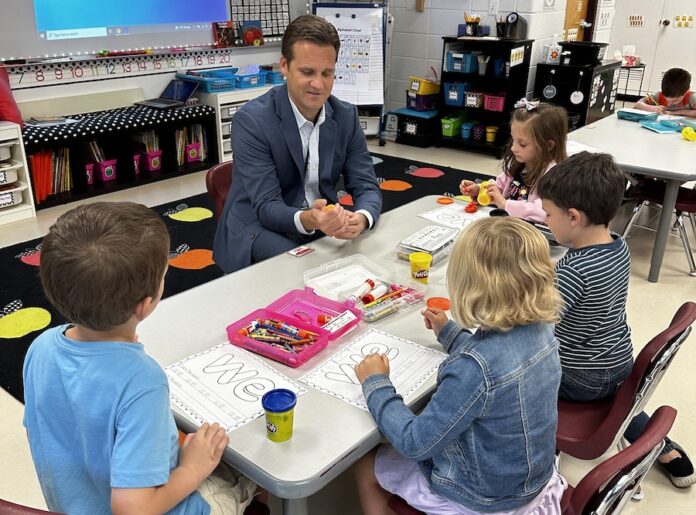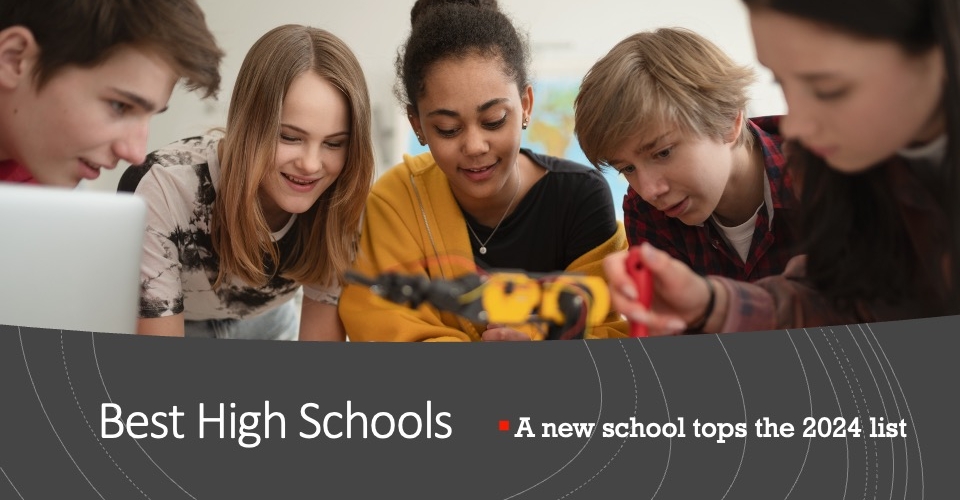Communication, and the ever-advancing technology that powers it, is all about storytelling for Superintendent Josh Reitz of McHenry School District 15 in Northern Illinois.
“There are success stories of our students and staff each day that need to be shared,” says Reitz, who was recently named a Superintendent to Watch by the National School Public Relations Association. “There are strategic plans that need to be carefully conveyed and feedback that we need from people to improve them. There are areas of confusion that need clarity and important resources or information that might be unknown to others which we need to shed light on.”
Of course, not every story needs to be told in the same way, adds Reitz, who chatted recently with District Administration about matching communication tools to the message, why leaders must be motivators and “rekindling” the educational environment.
Describe how you use communications technology.
Reitz: In schools today, technology is ubiquitous and an integral part of managing, leading and communicating. In our day-to-day operations, we utilize various types of technological hardware, software and platforms to reach our stakeholders, operate more efficiently and transparently, and enhance instruction.
Strategic usage of tools allows us to serve our families and students better so we spend considerable time determining what tools best serve various situations. On the instructional side of things, we are particularly proud of the innovative initiatives we have introduced in the areas of STEM, STEAM and digital media and communications. These efforts have received recognition at the local, state and national levels.
Specifically in regards to communication, we understand that technology has an essential role in telling our story to the McHenry learning community. We recognize that there are multiple ways to tell all those stories. Not every message needs to be told the same way nor can all messages be communicated as effectively in the same fashion. To that end, we embrace various avenues of communication inclusive of, but not limited to, written messages, social media channels, online platforms, video and digital media/newsletters.
Get on Board: How 2 superintendents reach out to school board candidates
As a communications team, we identify the messages we need to share, analyze their purpose and audiences and match our communication tools with them so that we reach people more effectively. Our most critical efforts to this point are recent improvements we have made to our web platform, which serves as our communication hub. We made a concerted effort to personalize this site by authentically telling the story of our district and eight schools, make it visually appealing, easy to navigate, and allow for two-way communication.
What are the most exciting things happening at McHenry School District 15?
I am excited about so many things in District 15. From improvements to facilities, instruction, community engagement, innovation, staff development, safety, and social-emotional learning, virtually every aspect of our system is engaged in meaningful and impactful work. Perhaps what I’m most excited about is our development and implementation of a strategic plan last year.
While we have multiple initiatives taking place, we don’t view our strategic plan as one extra thing. Instead, we see it as the one thing that allows us to attend to all of the systemic work we are conducting across the district aligning our many efforts, resources, and practices towards a unified purpose. Created by a large stakeholder group that included administrators, board members, teachers, parents, students and community members, a shared responsibility towards the plan was quickly developed.
This is important work that deserves consistent and deliberate attention. To that point, our team has created a cyclical process that allows us to interact with its elements throughout the year. Additionally, we view certain components of our plan—such as our mission statement, vision statement, core values, focus areas, and overarching goals and strategies—as static or constant. Knowing that these elements will not change promotes long-term planning and provides reassurance and consistency to stakeholders.
Other parts, such as our action steps, are dynamic. They are conceived and developed annually and monitored and reported on periodically each year. This gives us the opportunity to develop specific actions that are more realistically measurable and attainable creating a sense of accomplishment as we complete relevant tasks.
What are the keys to your leadership philosophy, and how do these contribute to McHenry District 15’s success?
Leadership, to me, is primarily about motivating others to do something new, move forward or reach their ultimate potential. It’s best cultivated in an environment of trust, support, and open communication between all stakeholders. Because this can be a tough path, it is also essential to have a clear and collectively embraced mission, an exciting and forward-thinking vision and a unified sense of purpose where goals are identified strategically and achieved collaboratively.
Leadership is demonstrated through words but, perhaps more importantly, it’s modeled through behaviors reflective of a unified and embraced set of core values. It is about encouragement, relationships, positivity and attending to the personal and professional growth of individuals. Lastly, leadership also often involves following or empowering others to take the lead. I am blessed to work with some of the most talented people I have ever worked with in my 25 years of education. I admire the work of our team and often lean on their strengths, dedication and talents knowing when to lead and when to follow or support.
How have your job responsibilities changed over the last few years?
I began my superintendency in July of 2021. In just that short period of time, I believe we have seen a lot of changes to education as we emerge from the COVID-19 crisis and attempt to rekindle the educational environment we all recall from pre-pandemic times.
More from DA: How this distinguished principal connects culturally with her Navajo students
While I do not have a huge sample size to refer to, I think it is fair to say that the role of a school superintendent is one of constant change. In order to best serve students, staff and families, school leaders need to pay careful attention to community goals, changing policies, societal needs, changing political landscapes, identified priorities and the emerging needs of students. I hesitate to use the word “normal” but I sense this year that we are returning to a more familiar school environment than we have had in the past few years allowing us to throw all of our efforts into improving our systems for the betterment of children.
What are the biggest challenges McHenry School District 15 is facing right now?
I feel fortunate to be in a profession that ultimately gets to serve children and those who work with them each and every day. Because of that, I try to view the challenges we face in as positive of a light as possible and as potential opportunities for growth and improvement. For District 15, most likely like all other school districts, we feel the weight of our responsibility to maintain safe facilities, address lack of personnel, meet the needs of all learners and staff, connect authentically with our families and community, responsibly address fiscal restraints, stay ahead of the curve in a rapidly changing world and meet the many accountability measures we are faced with.
Again, these challenges are not unique to McHenry School District 15, but can only reasonably be remedied by the implementation of a thoughtful and deliberate plan and a shared commitment from an entire community to address those needs.
Get on Board: How 2 superintendents reach out to school board candidates










